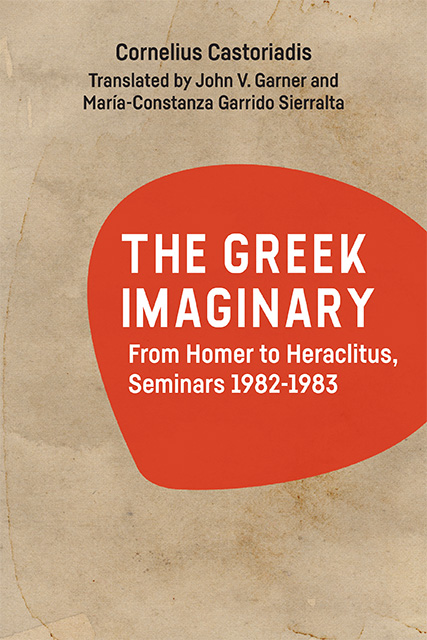XII - Seminar from March 2, 1983
Published online by Cambridge University Press: 20 October 2023
Summary
Today we will once again turn, as with Anaximander, to the texts themselves, with this difference, namely that instead of analyzing a single passage in a deep way, I will try to collect and comment on what remains with us from Heraclitus, namely a bit less than a 140 fragments (I’ll come back to this). If I wanted to take up Heraclitus here, it was for several reasons. First of all, it’s because it interests me passionately. Next, it’s because this is the first philosopher in Western history whose transmitted corpus allows for a work of interpretation that goes beyond the exercise of divination about a singular fragment or (as with Xenophanes) about a handful of lines. Thirdly and above all, it’s because with him we already find ourselves fully within philosophy, with all its splendor and indeed its obscurity. And this is especially because, as I told you last time, in this perpetual circle that philosophy and simply thinking travel, Heraclitus marks the achievement of a first movement; he completes—forgive me if I abuse the image—a first turn. For, let’s repeat that Heraclitus, the same as Anaximander, didn’t write in a void, as lots of interpreters seem tacitly to presuppose, particularly Heidegger. He takes full account of the world that surrounds him and of all that preceded him, all while separating himself very strongly from it. We could say that he made a sort of synthesis out of it in the Hegelian sense, i.e. what he denies isn’t ignored by him but—while being refuted and abolished—is implicitly contained in his own thinking. Heraclitus arrives at a crucial moment, which is (to take up the traditional terminology, which is inadequate in my view) at the end of the archaic period and the start of the great classical period. According to the doxographic tradition, he was born around 540 and thrived around 505–500. He is thus about forty years old at the turn of the century. To situate things, I’ll remind you of some other dates: Xenophanes was born around 570 and died around 470; Pythagoras was born around 570 and died around 490; Aeschylus was born around 525 and died in 456; Pindar was born in 518 (or 522); Parmenides, around 515; Herodotus, around 485.
- Type
- Chapter
- Information
- The Greek ImaginaryFrom Homer to Heraclitus, Seminars 1982-1983, pp. 201 - 224Publisher: Edinburgh University PressPrint publication year: 2023



